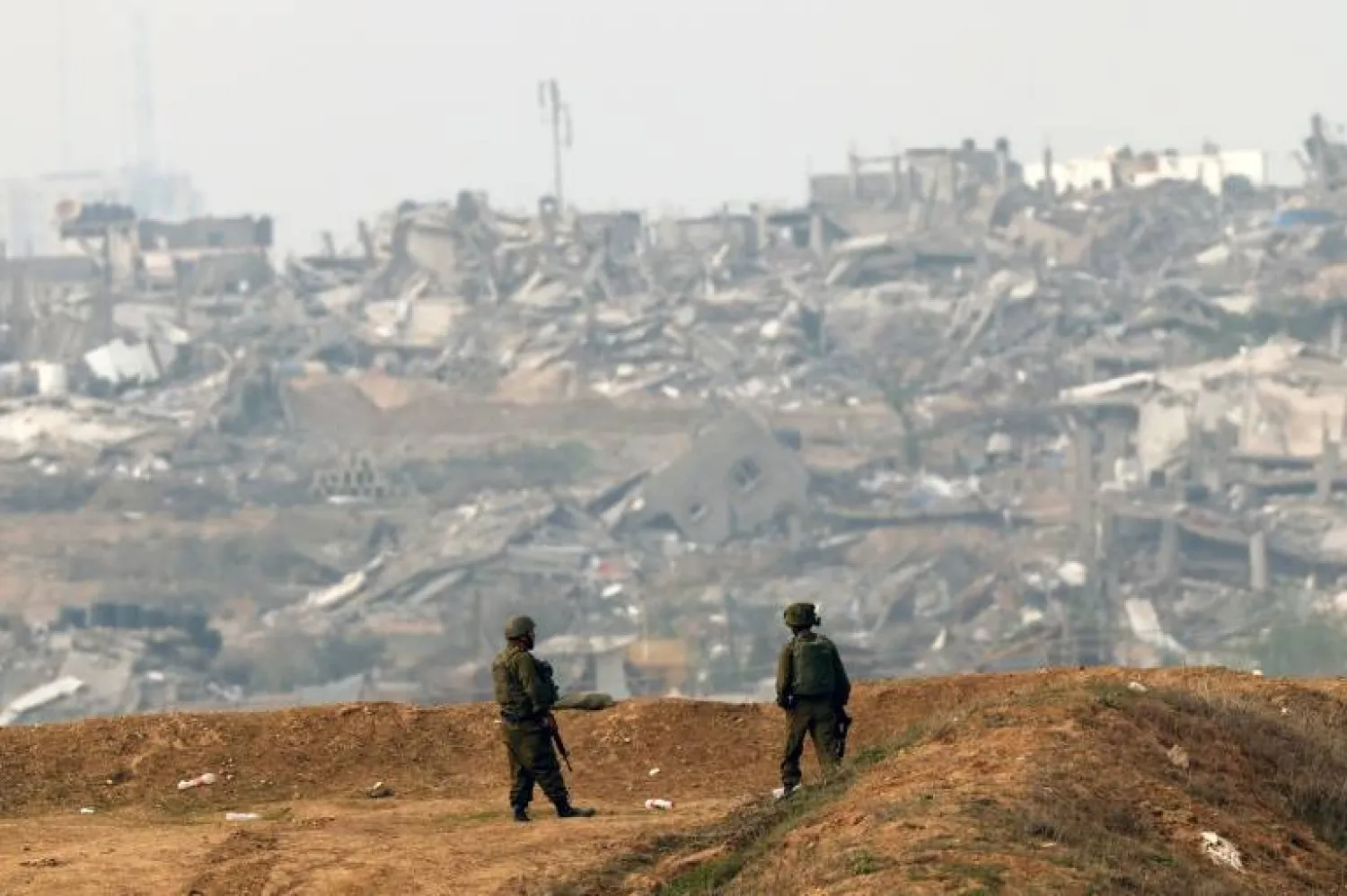Israeli forces pressed on with intensified attacks in the Gaza Strip's biggest southern city and a central refugee camp, after the territory's Hamas-run health ministry reported more than 21,000 people had been killed in 11 weeks of war.
Israeli army spokesman Daniel Hagari said on Wednesday that strikes on a central refugee camp in Gaza had entered a third day, and that an additional brigade had been deployed to the southern city of Khan Yunis, the recent focus of heavy urban combat.
He also hinted at a possible "expansion of fighting in the north" along the Lebanese border, which has seen repeated exchanges of fire between Israeli troops and Hezbollah militants since the war in Gaza broke out.
Following a visit to the border earlier in the day, army chief Herzi Halevi said the military had "approved plans for a variety of contingencies, and we need to be prepared to strike if required".
Israel has repeatedly vowed to keep up its campaign to destroy Hamas in retaliation for its bloody October 7 attack, which left about 1,140 people dead, most of them civilians, according to an AFP tally based on Israeli figures.
Palestinian fighters also took around 250 hostages, 129 of whom remain in captivity, Israel says.
Israel's relentless bombardment and ground invasion have killed at least 21,110 people, mostly women and children, according to the latest toll from Gaza's Hamas-run health ministry.
The army announced the deaths of three more soldiers on Thursday morning, bring the total killed in Gaza to 167.
Calls for an end to the hostilities continued to mount on Wednesday, with French President Emmanuel Macron emphasizing in a call with Israeli Prime Minister Benjamin Netanyahu "the need to work towards a lasting ceasefire".
He also expressed his "deepest concern at the very heavy civilian toll" in Gaza, his office said in a statement, adding that France would be working with Jordan to carry out humanitarian operations in the territory "in the coming days".
Since Israel imposed a siege at the outset of the war, Gazans have faced severe shortages of food, water, fuel and medicine.
WHO chief Tedros Adhanom Ghebreyesus echoed calls for a ceasefire on Wednesday.
He pressed the international community to take "urgent steps to alleviate the grave peril facing the population of Gaza and jeopardising the ability of humanitarian workers to help people with terrible injuries, acute hunger, and at severe risk of disease".
In the same statement, the WHO said its staff had reported that "hungry people again stopped our convoys today in the hope of finding food".
An estimated 1.9 million Gazans have been displaced, the UN says.
One of them, Iman al-Masry, recently gave birth to quadruplets in a hospital in southern Gaza after fleeing her family’s home in the territory's devastated north early in the war.
The journey "affected my pregnancy", the 28-year-old said on Wednesday, and she gave birth by C-section on December 18 to two girls and two boys.
She was quickly asked to leave the hospital to make room for other patients, but had to leave behind one son who was too fragile to go with them.
"They are very slim," she said of the infants from a cramped schoolroom turned shelter in Deir al-Balah.
"Because of the lack of... baby formula, I try to breastfeed them, but there's no nutritious food I can eat to breastfeed the three babies," she added.
Not far away, at the Al-Maghazi refugee camp, a UN-run school doubling as a shelter was hit by shelling in the night.
"They tell you there are green zones and other zones with other colours. All those are rumours, there are no safe zones in Gaza," one man told AFP on Wednesday, without giving his name.
The war has raised fears of a broader regional conflict, with the deadly cross-border exchanges between Israel and Hezbollah, as well as recent attacks on shipping by Houthis in Yemen acting in solidarity with Hamas. All three militant groups are backed by Iran.
Israel wants Hezbollah – which says it is acting in support of Hamas – to withdraw further away from the border, and has threatened to achieve that goal by overwhelming force, if necessary.
Meanwhile, a drone crashed near a village in the Israel-annexed Golan Heights, the Israeli army said Thursday, with an Iraqi faction close to Hamas claiming responsibility for an attack in the area.
Violence has also flared across the occupied West Bank, with more than 310 Palestinians killed by Israeli troops or settlers since October 7, the health ministry there said.
An Israeli operation in a refugee camp in the northern West Bank killed six people Wednesday, the ministry said. The army said it had struck the Nur Shams camp from the air.
The army's operations continued overnight into Thursday, notably in Jenin and Ramallah, according to the official news agency Wafa.









